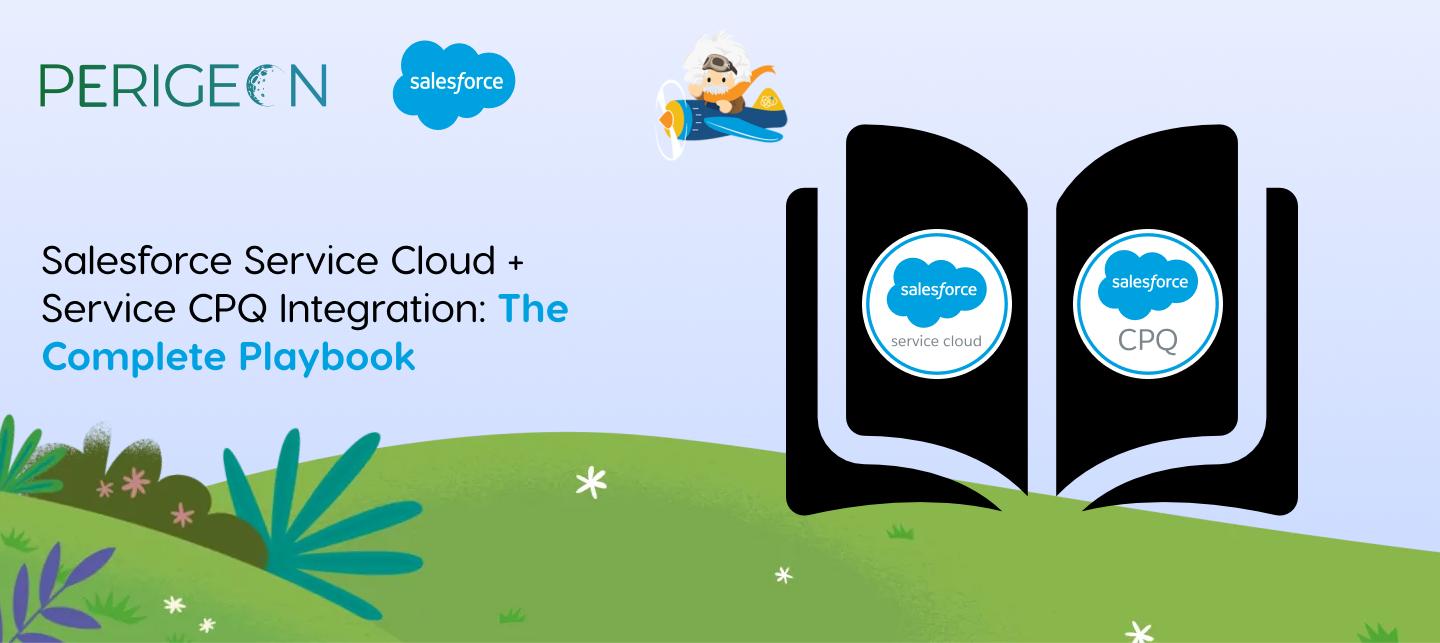For many service-driven businesses, support and quoting processes don’t always talk to each other. Service agents manage cases in Salesforce Service Cloud, while quoting teams work separately in Service CPQ.
This disconnect often leads to:
- Inaccurate or delayed service quotes
- Customer frustration from repeated data entry
- Lost revenue opportunities due to lack of upsell/renewal visibility
The answer? Integrating Service Cloud with Service CPQ.
At Perigeon, we’ve implemented these integrations for companies in utilities, energy, and manufacturing—bridging customer support, service delivery, and revenue management into one seamless flow.
Why Integrate Service Cloud with Service CPQ?
-
Faster Quoting from Cases
Service agents can convert a support case directly into a service quote without leaving Salesforce. -
Accurate Service Contracts
CPQ pricing rules ensure quotes are accurate, consistent, and aligned with your service catalog. -
Upsell & Renewal Visibility
Agents can spot renewal opportunities or upsell services while handling customer issues. -
Improved Customer Experience
Customers get one connected journey—from issue resolution to service upgrade or contract renewal.
Typical Integration Architecture
- Salesforce Service Cloud → Case, Entitlement, Asset, Service Contract data
- Salesforce Service CPQ → Quote, Product Rules, Pricing, Renewals
- Integration Layer (Apex APIs, MuleSoft, Boomi, or direct flows)
Workflow Example:
- Case logged in Service Cloud.
- Agent identifies service opportunity → pushes to CPQ.
- CPQ generates accurate quote with pricing + terms.
- Quote synced back to Service Cloud for visibility.
Key Integration Scenarios
1. Case-to-Quote Automation
- Customer case requires a new service.
- Agent triggers “Generate Quote” → CPQ auto-builds quote with pre-configured pricing.
2. Service Renewals
- Service contract nearing expiration.
- Renewal case triggers CPQ quote for renewal/upgrade.
3. Asset-Linked Quotes
- Case tied to installed product (Asset object).
- CPQ pulls correct pricing for replacement/maintenance services.
Challenges in Integration
- Complex Pricing Rules: Service CPQ configurations can be complex; mapping to Service Cloud requires careful planning.
- Data Model Alignment: Aligning Case/Contract/Asset objects with CPQ Quote objects is non-trivial.
- Automation Balance: Too much automation without approval steps can create compliance risks.
These challenges highlight the importance of experienced Salesforce partners like Perigeon.
Best Practices Perigeon Follows
- Unified Data Model: Map key objects (Cases, Assets, Entitlements) to CPQ fields for seamless flow.
- Approval Workflows: Ensure quotes auto-generate but pass through configurable approvals.
- Scalable Architecture: Use Salesforce-native automation (Flows, Platform Events) wherever possible; add middleware for large-scale ops.
- Testing & QA: Validate pricing accuracy, renewals, and document templates before go-live.
Why Perigeon?
- Salesforce Partner Expertise → Service Cloud, CPQ, and Field Service across industries.
- Hands-On Projects → Integrated Service CPQ with Service Cloud for utilities, asset-heavy industries, and managed services.
- End-to-End Capability → Business consulting, technical integration, and ongoing support.
? With Perigeon, businesses don’t just get an integration—they get a scalable, compliant, and business-ready solution.
Considering a Salesforce Service Cloud + CPQ integration?
Perigeon specializes in connecting support, quoting, and contract management to deliver faster revenue cycles and improved customer satisfaction.





